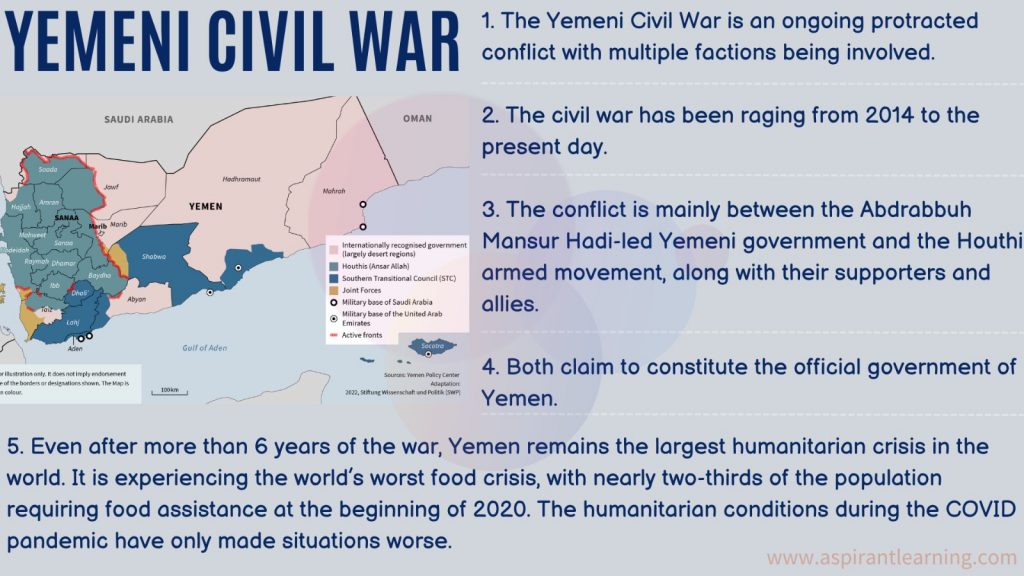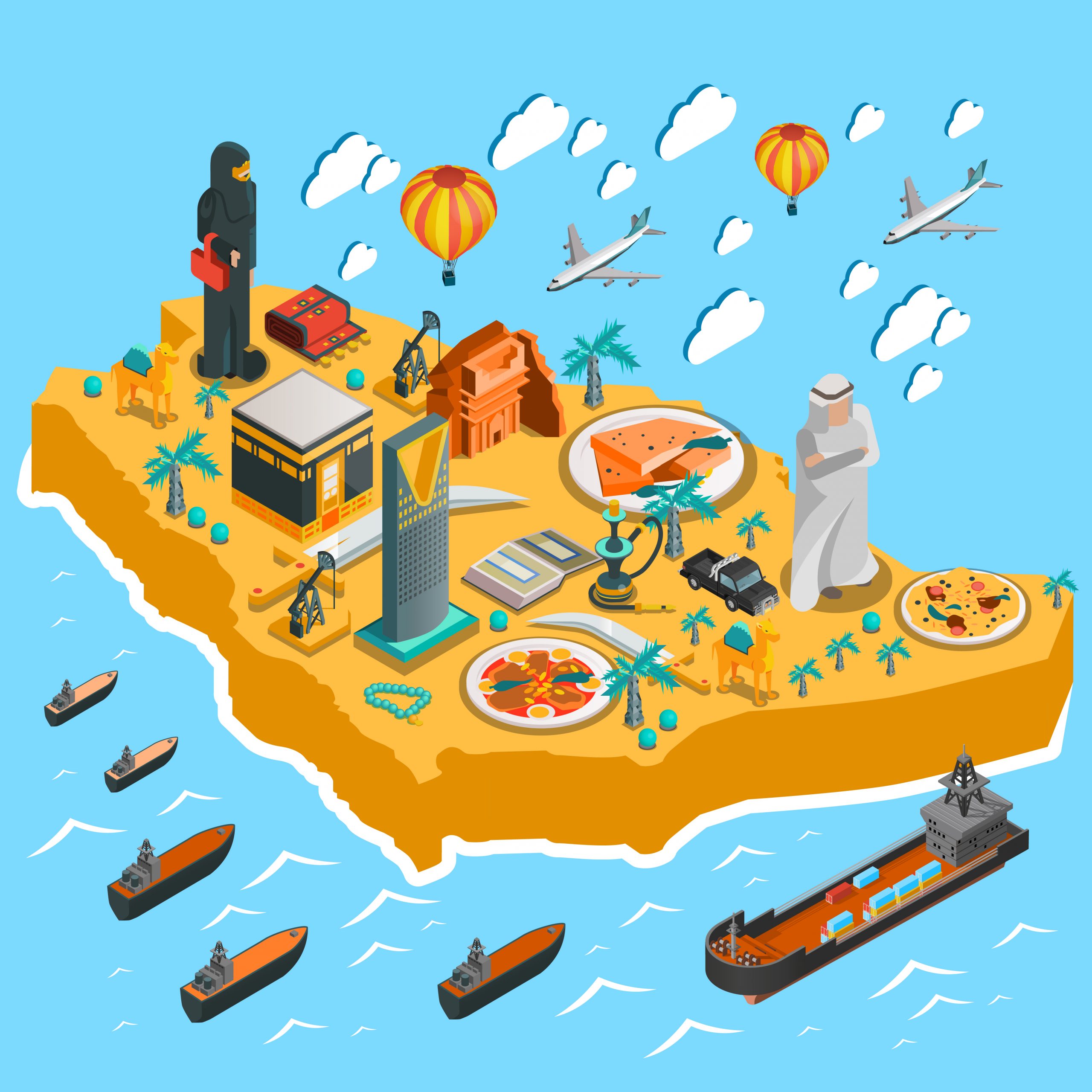News Highlights:
- Recently, Saudi Arabia and Iran agreed to restore diplomatic relations in an agreement brokered by China.
- The rivalry between the two dates back to pre-revolution Iran when they competed for regional dominance.
Key Takeaway:
It comes as diplomats have been trying to end a long war in Yemen, a conflict in which both Iran and Saudi Arabia are deeply entrenched.
Major Highlights
- Key Outcomes of the Talks:
- The two countries plan to reopen their respective embassies in Tehran and Riyadh.
- They also vowed to respect countries’ sovereignty and not interfere in internal affairs.
- They also agreed to activate a 2001 security cooperation agreement and a general economy, trade and investment agreement signed in 1998.
- Potential Consequences:
- The deal could have implications for a US-led effort to isolate Iran economically through sanctions.
- If Saudi relations are genuinely warming with Tehran, one consequence will likely be Saudi investment inside Iran.
- A further potential consequence of the diplomatic re-engagement is that Saudi Arabia may rein back its London-based satellite channel Iran International.
- The pact does not necessarily mean any change in the Saudi approach to the Palestinian conflict, where it has warned Israel that it is on course to cause dangerous bloodshed.
- Implications of Agreement:
- The agreement has potentially wide implications for the Iran nuclear deal and the civil war in Yemen, where the two sides are locked in a proxy war.
- The deal shows the new determination of Saudi Arabia to conduct a foreign policy independent of the West.
- Some quarters from Israel have described the pact as a “serious and dangerous” development and a “fatal blow to the effort to create a regional alliance” against the Islamic Republic.
- Saudi Arabia has refused to join the Abraham accords that normalised relations between Israel and some Arab states.

Conflict between Iran and Saudi Arabia:
- Religious Factionalism
- Relations between Saudi Arabia and Iran have largely deteriorated due to centuries-old religious differences. They each follow one of Islam’s two main branches.
- Iran is predominantly Shia Muslim, whereas Saudi Arabia sees itself to be the leading Sunni Muslim power.
- Leader of the Islamic World
- Historically, Saudi Arabia, a monarchy and the birthplace of Islam, saw itself as the Muslim world’s leader.
- However, in 1979, the Islamic revolution in Iran created a new type of state in the region – a revolutionary theocracy with the explicit goal of exporting this model beyond its borders.
- Regional Cold War
- Saudi Arabia and Iran, two powerful neighbours, are locked in a fierce struggle for regional dominance.
- Uprisings in the Arab world (after the Arab Spring in 2011) prompted political instability.
- Iran and Saudi Arabia used the upheavals to increase their influence, most notably in Syria, Bahrain, and Yemen, further heightening mutual suspicions.
- Furthermore, external powers such as the United States and Israel have significantly exacerbated the conflict between Saudi Arabia and Iran.
- Proxy Wars
- Although Iran and Saudi Arabia are not directly fighting, they are involved in several proxy wars around the region (in which they assist rival groups and militias).
- Consider the Houthi rebels in Yemen. These groups can acquire stronger capabilities, causing further instability in the region. Saudi Arabia accuses Iran of backing them up.
- Following Saudi Arabia’s execution of Shiite Muslim cleric Sheikh Nimr al-Nimr, many Iranian protesters attacked Saudi diplomatic missions in Iran in 2016.
- Attacks on Saudi Arabia:
- Since US’s withdrawal from Iran’s Nuclear deal, Iran was blamed for a series of attacks, including one targeting the heart of Saudi Arabia’s oil industry in 2019.
- Western nations and experts have blamed the attack on Iran though the latter has denied launching the attack.
Implication for India:
- The recent agreement is a wake-up call for India because Pakistan, a Chinese ally, will gain from the new alliance.
- Recently, the I2U2 group, consisting of India, Israel, the UAE and the US, has met, leaving India isolated by the new convergence of the China-Iran-Saudi alliance.
- The right-wing government in Israel under Netanyahu is also making rapprochement between conservative Arab nations and Israel difficult.
- China is ready to shape regional politics, and India must be aware of such developments by avoiding any grouping created by outside powers.
Pic Courtesy: The Hindu
Content Source: The Hindu



